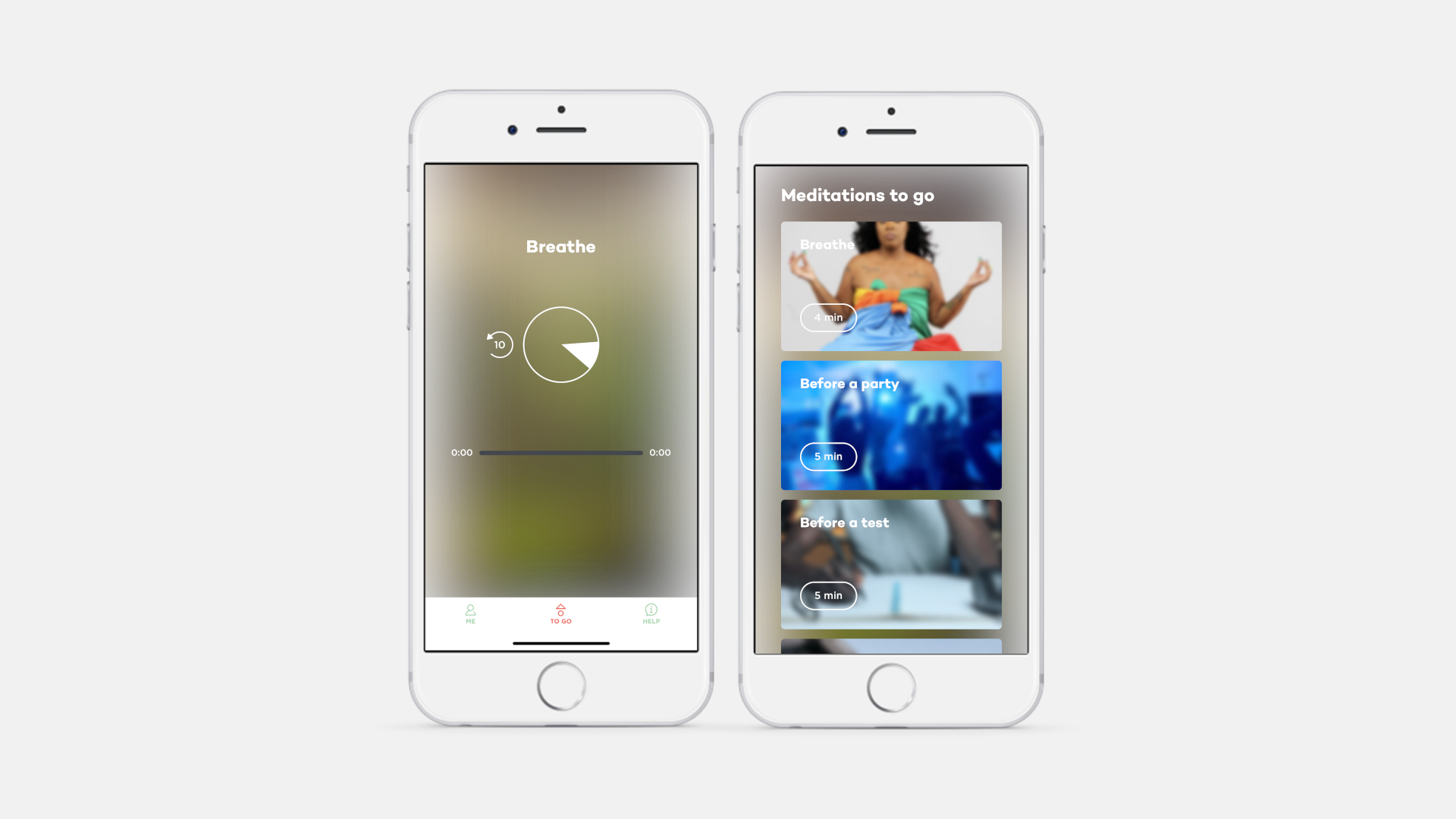UIC’s Meditation App Gets a Mindful Refresh

When a local research university’s developer partner was unable to complete an app needed for a research study due to COVID-19 challenges, SPR quickly mobilized to finish development and prepare the app for launch.
ADAPTING A MINDFULNESS APP FOR A RESEARCH STUDY
Mobile health, or mHealth, is rapidly becoming a central pillar in human health and healthcare. Utilizing everything from wearable health-related technologies to mobile phone applications, more and more people around the world are using some form of mHealth, with more than 83% of the World Health Organization’s participating nations engaging in at least one mHealth initiative in their country.
Researchers at the University of Illinois at Chicago, a public research university in Chicago, Illinois, are testing the ways mHealth can be leveraged across different populations. One such research study is being conducted by Dr. Ashley Kendall, a clinical psychologist and Assistant Professor of Medicine in UIC’s Center for Dissemination and Implementation Science.
Kendall and her team are exploring the ways in which mindfulness meditation can be used to encourage emotional regulation and curb risky behaviors in arrested youth on probation (ages 13 – 17) in Chicago’s juvenile justice system. Her research study, a randomized controlled trial funded by the NIH, will test a mindfulness meditation app geared toward justice-involved youth against a health promotion control app matched to the meditation app for time and structure but which does not include meditation content. Both apps will guide the users through a thirty-day “path” of audio and video files.
THE UNIQUE CHALLENGES FACED BY THE CUSTOMER AND DEVELOPMENT TEAM
Kendall and her team originally worked with the programmers of an existing mindfulness meditation app to adapt their application to the study’s audience. The original application, and the adapted one developed by Kendall and her fellow researchers, uses gold-standard, evidence-based methods to help both new and seasoned meditators with their practice.
Due to challenges and constraints arising from the COVID-19 pandemic, the original software developers were unable to complete the adapted application in time. Seeking to finish implementation on the new platform, UIC turned to SPR to deliver the solution needed for their research trial.
The SPR team was challenged with picking up a project mid-development and had to meet the unique demands of the development project. Because the app and associated platform would be used in a research project, the app had to capture in-app analytics, track what users were doing within the app, when and how they used the app, and what features they used and for how long. Furthermore, deadlines owing to a planned pilot study and the tight timelines had to be balanced against adapting the original consumer application into an appropriate tool for a research study, maintaining ethical and regulatory compliance while protecting the study’s population.
The system had to address the study population’s high, but often irregular, access to smartphones, the potential of a limited ability to charge devices, and the high incidence of using different devices to access the app. The application had to be adaptable so users could pick back up their work with in it, reinstall it and easily continue the path outlined in the study. The app also needed to enter sleep mode after the recorded meditations finished so as not to drain the device’s battery.
Other technical considerations included:
- Deploying highly-available, cloud-based webservices
- Developing the app for both iOS and Android
- Integrating with Twillio to send text messages
- Leveraging the cloud through AWS S3 for storing meditation content
The mobile apps were developed using the latest native languages and frameworks (Swift and Kotlin). The Web Services leveraged the Python Django web application framework using a Postgresql database deployed to the Heroku cloud platform.
DEDICATION AND DETERMINATION FROM SPR’S EXPERTS DROVE THE PROJECT ACROSS THE FINISH LINE.
To meet the research team’s requirements, SPR’s mobile development and web services experts worked closely with UIC throughout the process, meeting multiple times per week to keep the project on track and all stakeholders apprised of development progress. "The SPR team we worked with was truly outstanding. I can't imagine better collaborators for mHealth research. They met with us frequently to ensure we are on the same page, listened carefully to our needs, worked with us creatively to meet those needs within our budget, and provided deliverables that regularly exceed our expectations,” said Kendall. SPR also built the app with the future in mind. Kendall notes, “Since we hope to scale the use of the app and adapt it for new audiences, we needed a team that wouldn’t cut corners. The SPR team crafted the app with expert precision and have set us up for success today and in the future.”
